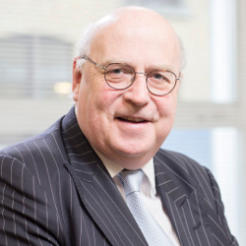NCVO supports the Charity Commission’s decision to focus more on regulation, but is cautious about the need for new powers in the Protection of Charities Bill, Sir Stuart Etherington told the committee scrutinising the bill yesterday.
Etherington, the chief executive of NCVO, was giving evidence to the Joint Committee on the Draft Protection of Charities Bill.
The bill is intended to give a number of new powers to the Commission, including the power to ban people with convictions for certain criminal offences from trusteeship, a power to issue official warnings, and a power to require a charity to be shut down.
The Commission is also seeking to have further powers included in the bill, including the right to use its powers outside an inquiry and to disqualify banned trustees from other jobs in charity. These powers were included in an initial consultation but not in the final bill.
“We welcome the fact that the Commission has decided to focus more on regulation and we think it’s a good thing,” Etherington said.
Other charities have expressed caution about the Commission’s focus on regulation, saying that it has neglected its duties to provide guidance and act as a registrar.
Etherington said he had concerns about some of the measures in the bill, saying that the power to wind up a charity was too broad and that a power to give statutory warnings was vague and needed further guidance.
He said he was not in favour of reintroducing powers proposed by the Commission but not included in the bill, except for one power which provides the ability to disqualify a banned trustee from other positions of power.
But he said that power would need more significant safeguards and closer definition.
He said that rather than the Commission using the power, it should have the ability to apply to the courts for an order to be made. But he denied he was “suspicious” of the Commission’s motives. “I would never say I was suspicious of the Charity Commission,” he said.
He said that a recent NCVO decision to review the Commission’s governance was not based on any doubts about the skills of existing or previous Commission staff or board members, but was driven by the possibility that charities might have to pay for the Commission’s services.
The idea that charities might pay for the Commission’s services themselves has been mooted by Paula Sussex, the chief executive of the Commission, and Etherington said he expected the Commission to launch a consultation on the possibility next year.
He said that NCVO had not “formed a view” on whether charging was a good idea and would consult widely in the sector. But he said if the Commission did receive payment from charities, the appointments system would have to be changed so it was “outwith ministerial control”.
Bernard Jenkin, the Conservative MP for Harwich and North Essex, and a member of the committee, questioned whether the NCVO had the remit to investigate the Commission. “I’m very confident it’s within our remit,” Etherington said.
Etherington also said he was not in favour of registration or minimum qualifications for trustees, saying it was already hard enough to recruit trustees without adding additional requirements.









